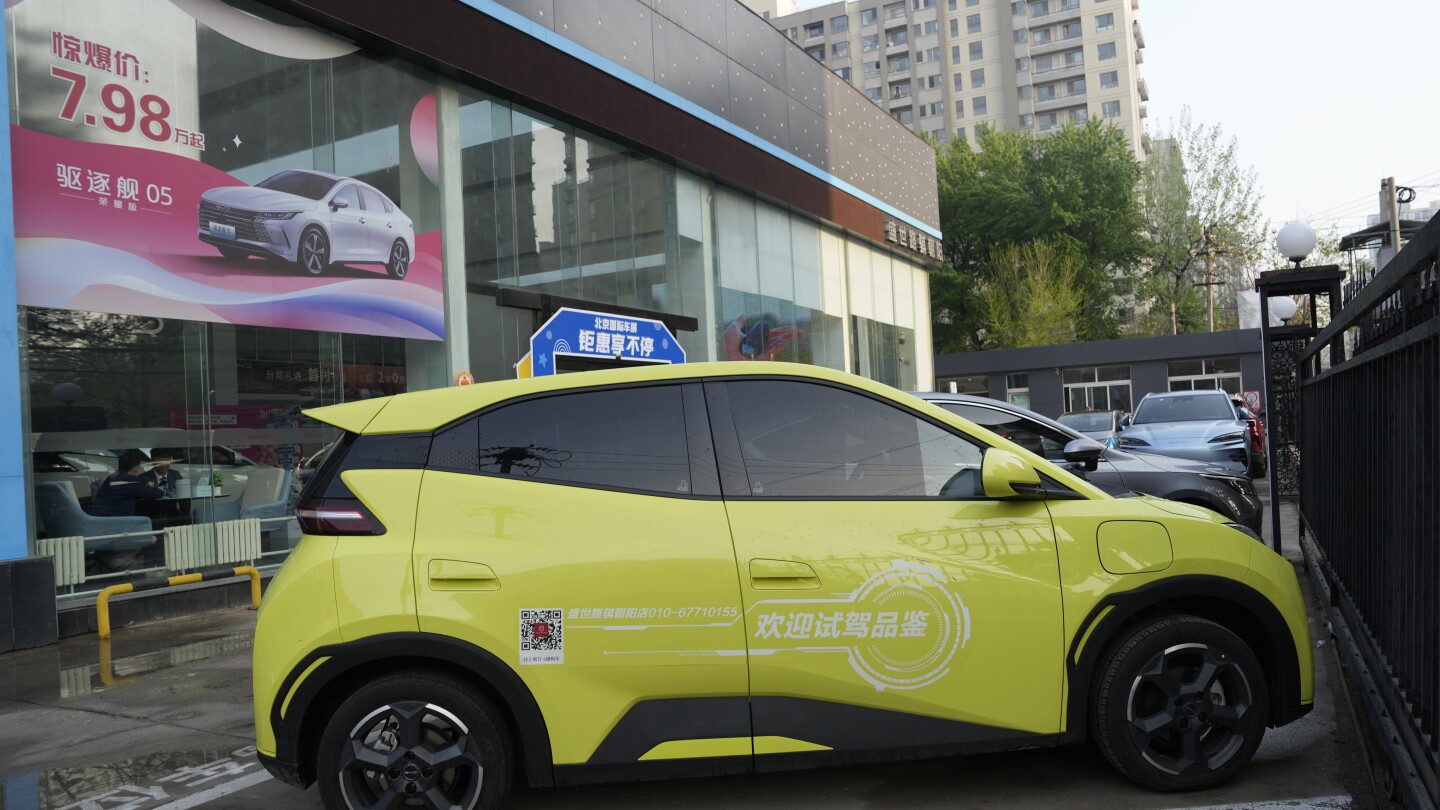A tiny, low-priced electric car called the Seagull has American automakers and politicians trembling.
The car, launched last year by Chinese automaker BYD, sells for around $12,000 in China, but drives well and is put together with craftsmanship that rivals U.S.-made electric vehicles that cost three times as much. A shorter-range version costs under $10,000.
Tariffs on imported Chinese vehicles probably will keep the Seagull away from America’s shores for now, and it likely would sell for more than 12 grand if imported.
But the rapid emergence of low-priced EVs from China could shake up the global auto industry in ways not seen since Japanese makers exploded on the scene during the oil crises of the 1970s. BYD, which stands for “Build Your Dreams,” could be a nightmare for the U.S. auto industry.
“Any car company that’s not paying attention to them as a competitor is going to be lost when they hit their market,” said Sam Fiorani, a vice president at AutoForecast Solutions near Philadelphia. “BYD’s entry into the U.S. market isn’t an if. It’s a when.”



Yeah I’m a bit puzzled because I think these folks are supportive of labor given they seem positive about workers in China having better safety nets. Yet letting cars in that will destroy local manufacturing isn’t going to do anything positive for North American labor. If anything is going to help, it’s supporting them instead of non-union car makers and supporting union action at non-union manufacturers. I’m of the opinion that we can’t expect any improvements from the political class before we take more of the profits so we can buy those politicians like corporations have. They simply won’t represent labor to a significant extent unless they see workers as organized voting blocks that don’t lap up corporate propaganda.
The master’s tools will never dismantle the master’s house. — Audre Lorde
I don’t think we should try to play the game by the capitalist class’ own rules, which they created for themselves. We’re never going to be able buy the political system by outspending the capitalist class: they own the means of production and it’s their political system.
Right now labor is very divided, shattered. It was significantly more organized a hundred years ago, though still divided along racial lines, a mistake we mustn’t repeat. People don’t seem to remember now how many socialists existed back then and were deeply involved in that organizing, before they were crushed by red scares and other skulduggery. And unfortunately almost all of our surviving unions came from explicitly anti-socialist roots, the others having been purged. Socialists are still extremely few in the US.
We can’t buy government, and we know our vote alone has very little power. What we need is a resurgent, re-organized labor movement, and new labor media (we used to have our own newspapers!) to counteract corporate media, and we need new mass industrial actions that fit today’s material conditions*. That’s how we forced the state to make concessions in the past.
*Simply organizing “blue collar” workers again won’t cut it, because many of us are not that now.
What you suggested is what I imagine. Thank you for articulating it!
They think they’re leftists. But they’re too “me first” on consuming to realize they’re not.